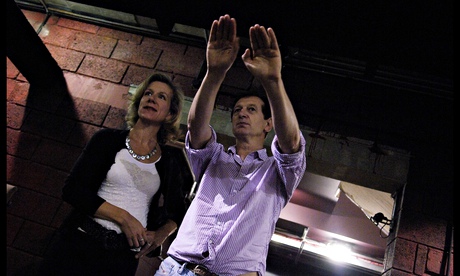Always, on entering the endlessly reconfigured auditoria of the Young Vic theatre, on London’s South Bank, the shiver of excitement at not knowing where the stage and the seats are going to be. Or perhaps there won’t be a stage at all, but an arena of mud (Shakespeare); a conference room (Ibsen); beanbags laid under the starry heavens (Brecht); plywood pews either side of a conveyer belt (Kafka); a mound of rubble with a woman buried to her neck (guess who). Most shocking of all, perhaps, are the productions in which the audience sits in rows, with the stage behind a proscenium arch. The Young Vic is a theatre that turns things topsy-turvy. The conventional is made shocking. Classics seem like new plays; new plays are treated as classics.
Its success is down, at least in part, to David Lan, who served as artistic director from 2000 to 2018, overseeing a major refurbishment and luring talent and audiences of all kinds to the small building, formerly a butcher’s shop and a bombsite. He has travelled the world and brought its greatest directors and ensembles back to this country, from Iceland, Africa, Australia, as others would bring back duty-free cigarettes. As a young man he witnessed that happy and forgotten time when Peter Daubeny’s world theatre season ran annually at the Aldwych, and when the National Theatre thought itself duty bound to host great foreign companies led by directors such as Peter Stein, Roger Planchon and Patrice Chéreau. Chéreau worked at the National in 1974, but did not return to this country until 2011 – at Lan’s invitation. The Young Vic became one of the few theatres in Britain to have a global perspective.
In 2015 it was widely reported that Lan had unsuccessfully applied to become co-director of the National, with Stephen Daldry. As If by Chance makes no mention of this, but is firm proof, were it needed, that the theatre’s board made a grave mistake. Lan’s writing glows with his humanity and skill, with his literal worldliness, as he patches together into one narrative all the many lives he has led.
Born in South Africa in 1952 to a family of eastern European Jews, he has been a student of JM Coetzee at the University of Cape Town, where he was caught up in anti-apartheid protests. He has worked at the Royal Court theatre, in a world of seedy 70s glamour, a life of freezing bedsits and Aldermaston marches. He has been a librettist for two operas, and the writer of some 20 plays and TV scripts. He has translated Chekhov. He has been playwright Nicholas Wright’s partner for over half-a-century. He has been conscripted into, and escaped from, the South African army. He has conducted two years of field research in northern Zimbabwe, and his study of the interrelation of guerrilla warfare with the local mediums possessed by the spirit of dead ancestors, Guns and Rain (1985), is still a classic anthropological text.
Lan constructs his memoir from short scenes that flick between these numerous existences, arranged in delightful disorder and written with the playwright’s flair for dialogue. Memories are not narrated so much as displayed through reconstructed conversation, as if Ivy Compton-Burnett had written a memoir: everything is shown, nothing is told. Lan’s ear for different modes of speech is brilliant, from his Jewish grandmother’s “beetroot voice” to his assistant in Zimbabwe, who starts every story with “long back ago”. He conjures portraits of directors from Luc Bondy to Ivo van Hove, of writers such as Caryl Churchill and David Mamet. He watches, as a child and as an adult, his parents’ marriage and health unravel; he crawls with his tape recorder near the flames and the drummers as a long-dead ancestor takes possession of a Zimbabwean spirit medium.
To read the book is to swim in someone else’s memory, unsure what is real, and what has been damaged or retinted by the passage of time, and by the memoirist’s ability to dramatise. Lan writes in that risky tense, the historical present, but readers who think themselves allergic to it should take some form of literary antihistamine and jump in. The book’s disarray of scenes and tenses, its slippery use of time, has a purpose. Lan is linking memory with theatre, and theatre with life. The narrative is constantly reconfiguring itself, like the auditorium of the Young Vic. He intercuts a drama on stage with a drama in his life, using dozens of quick-fire scene changes. Madame Ranevskaya, as she mourns her drowned son in Chekhov’s The Cherry Orchard, is spliced with his own mother, grieving his brother’s death from polio. Disconcertingly, he never employs a trio of asterisks – a literary black-out – to indicate the break between fiction and memory. Threads of recollection, truth and trickery are tightly interwoven through the book, linking the uncertainties of remembrance past with the uncertainties of theatre: the illusion of a reality that can seem more real than real life.
He is “Dovidol” to his Jewish grandmother; “Dave” to his mother; “Master Davey” to the gardener in his childhood home; “Gunner 68351048” to an angry sergeant; “dear David” to Peter Brook. But in the end, Lan’s many lives are entwined, to reveal them, all along, to have been one life, well lived. The dramatis personae are colleagues, friends, lovers, mentors, mentees; they are subjected to his scrutiny as he tries to unravel the complexities of societies and relationships, on stage and on paper, sparing nobody, least of all himself. The distance between the playwright, the director, and the social anthropologist is not that far, after all.
• As If by Chance is published by Faber (RRP £16). To order a copy go to guardianbookshop.com or call 020-3176 3837.










